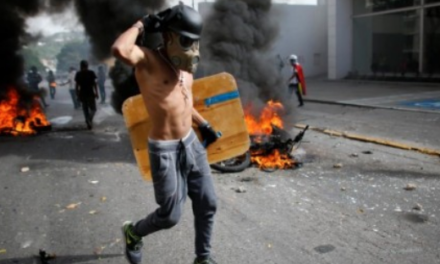I’ve spent the last two weeks on Venezuela’s Colombian and Brazilian borders, talking to the Venezuelans fleeing their country’s crisis and the organizations and officials offering some support. In an interview published yesterday on NPR Weekend Edition, I spoke with Scott Simon about the situation on the ground.
As I mentioned in the interview, the situation faced by Venezuelans who flee to neighboring countries is dire. In most cases, the people seeking economic opportunities on the Colombian and Brazilian borders are people who lack the resources to travel further, and are generally from low and middle income backgrounds. They’re seeking work in the informal sector, often sending money back to Venezuela to support family there. I spoke with a Venezuelan woman this week here in Boa Vista, Brazil from the eastern city of El Tigre, who told me that she had to leave because of the combination of the economic crisis and the shortage of medicines. She takes medication for a thyroid condition but said that her husband’s salary working as a PDVSA technician didn’t even cover a week’s worth of her medication, which she can only find on the black market. Both her and her husband now work in the informal economy; she cleans houses and he takes odd jobs as a mechanic. With this income, she told me, they’re able to send enough to her daughter back in El Tigre to ensure she is able to purchase food and essential goods.




